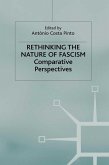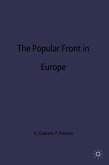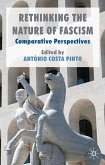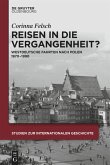This book takes up the stimuli of new international historiography, albeit focusing mainly on the two regimes that undoubtedly provided the model for Fascist movements in Europe, namely the Italian and the German. Starting with a historiographical assessment of the international situation, vis-à-vis studies on Fascism and National Socialism, and then concentrate on certain aspects that are essential to any study of the two dictatorships, namely the complex relationships with their respective societies, the figures of the two dictators and the role of violence. This volume reaches beyond the time-frame encompassing Fascism and National Socialism experiences, directing the attention also toward the period subsequent to their demise. This is done in two ways. On the one hand, examining the uncomfortable architectural legacy left by dictatorships to the democratic societies that came after the war. On the other hand, the book addresses an issue that is very much alive both in the strictly historiographical and political science debate, that is to say, to what extent can the label of Fascism be used to identify political phenomena of these current times, such as movements and parties of the so-called populist and souverainist right.








